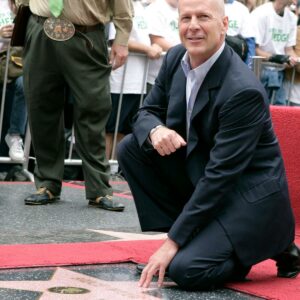When we think of Cillian Murphy, it’s easy to get swept up in his high-profile roles, from the calculated Tommy Shelby in Peaky Blinders to his recent portrayal of J. Robert Oppenheimer in Christopher Nolan’s Oppenheimer. However, beneath his mainstream acclaim lies a profound dedication to independent cinema. Murphy’s commitment to indie films isn’t just about career diversification; it’s rooted in a genuine passion for authentic storytelling, and his indie projects reflect an artist in pursuit of creative integrity over box-office success. From his early days in theater to his pivotal collaborations with indie directors, Murphy has become an essential advocate for independent films, inspiring both audiences and actors alike to appreciate cinema’s raw, unpolished side.
Theater Roots and the Indie Film Path
Murphy’s journey into acting began on the stages of Irish theater, a grounding that instilled in him a commitment to performance over spectacle. Growing up in Cork, Ireland, Murphy initially pursued a music career, performing in a rock band. But his discovery of theater shifted his artistic path dramatically. On stage, he found a space to explore complex characters and intricate storytelling without the distractions of cinematic special effects or commercial pressures.
His stage work quickly led to film, but Murphy didn’t dive straight into Hollywood. Instead, he gravitated toward low-budget, independent films that echoed his theatrical experiences. His breakout role in Disco Pigs (2001), an Irish independent film by Kirsten Sheridan, was gritty, intense, and entirely unpretentious, mirroring his raw approach to theater. This early experience not only brought Murphy into the film world but also solidified his inclination toward indie projects that prioritize substance over style.
The transition from theater to film might often lure actors toward big studios and glamorous red carpets. However, Murphy has always gravitated toward indie projects that align with his values. For him, the essence of cinema lies in its storytelling power, an ethos that’s deeply embedded in his background. Murphy’s roots in low-budget productions have remained a guiding compass, ensuring he chooses roles that resonate on a deeper level.
Support for Independent Filmmakers
Unlike many actors who dabble in indie films only at certain points in their careers, Murphy has consistently championed smaller projects, even at the height of his mainstream success. His choices are driven by artistic merit, often veering away from roles that promise commercial gain but lack depth. Murphy’s support for indie films is not a calculated career move; it’s a manifestation of his commitment to meaningful cinema.
A prime example is his role in The Wind That Shakes the Barley (2006), a historical drama directed by Ken Loach, which depicts the Irish War of Independence. This film, far removed from the glamor of Hollywood, allowed Murphy to explore his heritage and bring a pivotal moment in Irish history to life. The movie was a critical success, winning the Palme d’Or at Cannes, yet it was grounded in authenticity rather than any commercial promise. Murphy’s decision to work with Loach, an iconic figure in independent cinema, was not about enhancing his fame—it was about serving a story he felt needed to be told.
Moreover, Murphy’s support extends beyond starring roles. He often advocates for the work of up-and-coming filmmakers, lending his name and presence to projects that might otherwise struggle for attention. This endorsement is invaluable in an industry where independent filmmakers often face significant hurdles in securing funding and distribution.
Collaborations with Indie Directors and Production Studios
Cillian Murphy’s dedication to indie cinema can also be seen in his collaborations with emerging directors and smaller production studios. Rather than seeking the comfort of established Hollywood networks, he has aligned himself with a community of independent creatives who share his passion for originality and innovation.
Working with directors like Ken Loach, Neil Jordan, and John Crowley, Murphy has contributed to some of indie cinema’s most striking narratives. His role in Breakfast on Pluto (2005), directed by Neil Jordan, was one such project. Murphy played a transgender woman in 1970s Ireland—a challenging, multifaceted role that broke away from typical Hollywood portrayals of gender and identity. The film, backed by an indie studio, might not have promised massive box-office returns, but Murphy embraced the challenge, once again putting artistry before popularity.
Murphy’s collaborations with studios such as Element Pictures, an independent production company based in Dublin, further underscore his commitment to indie films. By working with local studios, he not only supports the Irish film industry but also ensures that unique, culturally resonant stories reach international audiences. His involvement in such projects provides indie studios with the star power needed to attract wider attention, yet he approaches these roles with humility, seeing himself as a collaborator rather than a headliner.
Impact on the Indie Film Scene
The impact of Cillian Murphy’s presence in independent cinema is substantial. His involvement in indie films boosts their visibility, encouraging audiences who might otherwise overlook smaller projects to give them a chance. Murphy has become a bridge between mainstream and indie cinema, introducing viewers to a world of storytelling that prioritizes substance over spectacle.
For independent filmmakers, Murphy’s involvement can mean the difference between obscurity and recognition. His participation brings credibility and draws attention, making it easier for indie projects to secure funding and reach broader audiences. In many ways, Murphy’s commitment to indie films has helped shift industry attitudes, highlighting the value of smaller-budget productions and encouraging mainstream actors to explore similar paths.
Furthermore, Murphy’s choice to consistently work on indie films, even as he achieves significant mainstream success, sets a precedent in the industry. He exemplifies that one can be a high-profile actor without forsaking the authenticity that indie projects bring. Murphy’s indie contributions remind both audiences and actors that powerful, memorable cinema can come from modest budgets and unconventional stories.
Commitment to Storytelling Over Profit
Murphy’s career is a testament to his belief in storytelling as an art form that transcends profit. While Hollywood blockbusters offer fame and financial reward, Murphy has often leaned toward roles that speak to him on a personal level, roles that offer a platform for honest, sometimes uncomfortable truths. His philosophy centers on the idea that the purpose of acting isn’t to entertain alone but to provoke thought, empathy, and introspection.
His role in Anthropoid (2016), a historical drama based on the assassination of a high-ranking Nazi official, exemplifies this approach. Murphy could have chosen projects with bigger budgets and higher profile directors, but he selected Anthropoid for its narrative integrity. Despite the film’s modest budget, it gave him the opportunity to delve into the psychological complexities of resistance fighters during World War II. Murphy’s performance in such roles underscores his dedication to quality storytelling, setting an example for others in the industry.
This commitment to storytelling over profit isn’t just a career choice; it’s a guiding principle. In an era where profit margins often dictate creative decisions, Murphy remains a refreshing counterpoint. His dedication to indie projects, rooted in his belief in the power of narrative, challenges the notion that box office numbers are the only measure of a film’s worth.
Encouraging Others to Embrace Indie Films
Murphy’s influence extends beyond the screen. His career choices have inspired a new wave of appreciation for indie films, not only among actors but also among audiences who might otherwise overlook the genre. By consistently championing smaller films, Murphy encourages viewers to explore the indie film world, broadening their cinematic horizons beyond the conventional Hollywood landscape.
In interviews, Murphy often speaks about his love for indie films and the importance of supporting smaller filmmakers. His endorsements are sincere, grounded in his own experiences rather than any financial or promotional agenda. Murphy has become an unofficial ambassador for indie cinema, his genuine passion helping to demystify the genre and make it more accessible to mainstream audiences.
Through his advocacy, Murphy has helped to cultivate a broader appreciation for indie films, introducing audiences to storytelling that is unfiltered and often more daring than mainstream productions. His influence has encouraged people to step out of their comfort zones, expanding the reach of independent cinema and fostering a new generation of viewers who value artistry over spectacle.
Conclusion: The Lasting Legacy of Cillian Murphy’s Indie Commitment
Cillian Murphy’s career is a remarkable blend of mainstream success and unwavering dedication to indie cinema. His journey from the theater stages of Ireland to Hollywood fame is defined not by his roles alone but by his choices to support independent filmmakers, prioritize authentic storytelling, and challenge the norms of an industry often driven by commercial interests.
Murphy’s commitment to indie films is more than a career choice; it’s a philosophy that shapes his legacy. He is a rare example of an actor who uses his influence to champion the voices of smaller filmmakers, making it clear that genuine artistry has a place in modern cinema. Murphy has not only enriched the indie film scene but has also inspired audiences and actors to look beyond the allure of mainstream cinema, embracing the richness and depth that indie films offer.
In a world increasingly dominated by blockbuster franchises, Cillian Murphy stands as a powerful reminder that true cinematic art lies in its storytelling, its courage, and its authenticity. Through his work, he has redefined what it means to be a star—not in terms of fame or fortune, but in the light he shines on the art of film itself.





